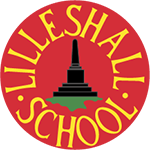
Lilleshall Primary School
Making Our Learning Fly
Lilleshall Primary School
Lilleshall Primary School Limekiln Lane Lilleshall Newport Shropshire TF10 9EY
Telephone:
Email:
Intent Implementation and Impact Statement
Lilleshall School- Religious Education Intent, Implementation and Impact Statement
Intent |
At Lilleshall Primary School, we believe that it is important for all our pupils to learn from and about religion, so that they can understand the world around them. The aim of Religious Education in our school is to help children to acquire and develop knowledge and understanding of Christianity and the other principal religions represented in Great Britain; to appreciate the way that religious beliefs shape life and behaviour, develop the ability to make reasoned and informed judgements about religious and moral issues and enhance their spiritual, moral, social and cultural development. Religious Education is taught throughout the school in such a way as to reflect the overall aims, values, and philosophy of the school, through topics such as in everyday life. It plays an important role, along with all other curriculum areas, particularly PSHE, in promoting social awareness and understanding in our children. We encourage our pupils to ask questions about the world and to reflect on their own beliefs, values and experiences. We include and promote British values, ensuring that children are aware of their rights and responsibilities as UK citizens. Our curriculum is designed to encourage creativity, imagination, enquiry, debate, discussion and independence. |
Implementation |
We use the Agreed Syllabus for Religious Education developed by Telford and Wrekin and the Jigsaw R.E. Scheme of Work as the basis for our curriculum. At Lilleshall Primary School, it has been agreed that having taken into account the requirements and guidelines presented in the Agreed Syllabus, the following religions have been selected for study:
Experiences and enrichment opportunities at Lilleshall Primary School
Early Years Foundation Stage
Pupils are introduced to Christianity as the ‘heritage religion’ and the one that most influences school and community life. They are taught about traditions, beliefs and world views outside of their own experiences through exploring other cultures and practices in the wider world.
Learning about religion and belief Pupils should be taught to:
Learning from religion and belief Pupils should be taught to:
Key Stage One
During this key stage, pupils are taught the knowledge, skills and understanding through religion and belief as well as wider learning themes. They are introduced to other principle religions and can reflect on prior learning as they progress through the units.
Learning about religion and belief Pupils should be taught to:
Learning from religion and belief Pupils should be taught to:
Key Stage Two
During this key stage, pupils are taught the knowledge, skills and understanding through deeper enquiry into known religions and in Year 6, encounter secular world views. Pupils in Year 5 and Year 6 consider the impact of beliefs and practices in greater detail and respond to more philosophical questions.
Learning about religion and belief Pupils should be taught to:
Learning from religion and belief Pupils should be taught to:
There are no presumptions made as to the religious backgrounds and beliefs and values of the children and the staff. We value the religious background of all members of the school community and hope that this will encourage individuals to share their own experiences with others freely. All religions and their communities are treated with respect and sensitivity and we value the links, which are, and can be made between home, school, and a faith community. We are extremely lucky that the vicar from the local church, St Michael’s, regularly visit our school to carry out assemblies. We acknowledge that each religion studied can contribute to the education of all our pupils. We promote teaching in Religious Education that stresses open enquiry and first-hand experiences wherever possible for both staff and children. |
Impact |
The children at Lilleshall Primary School enjoy learning about other religions and why people choose, or choose not to follow a religion. Through their R.E. learning, the children are able
As such, R.E. is invaluable in an ever changing and shrinking world. . |